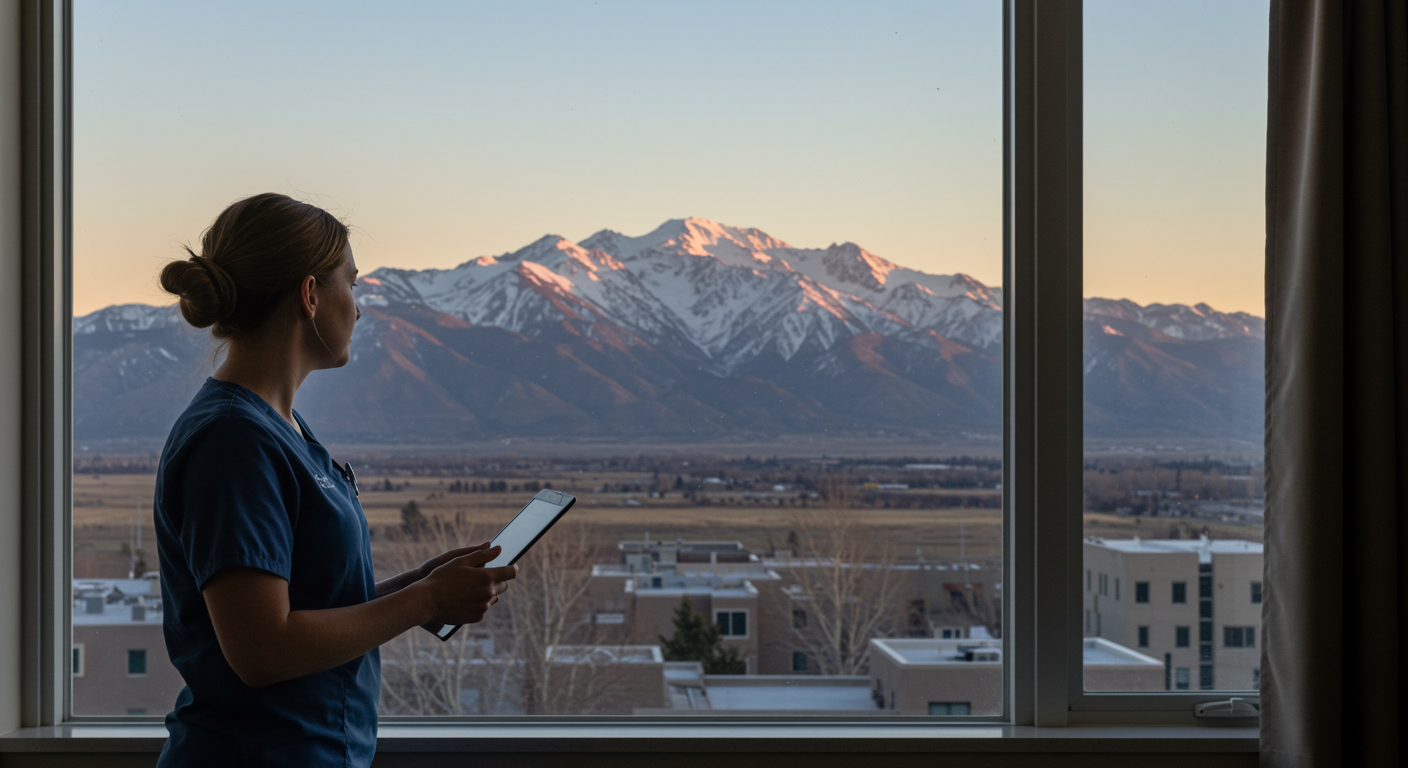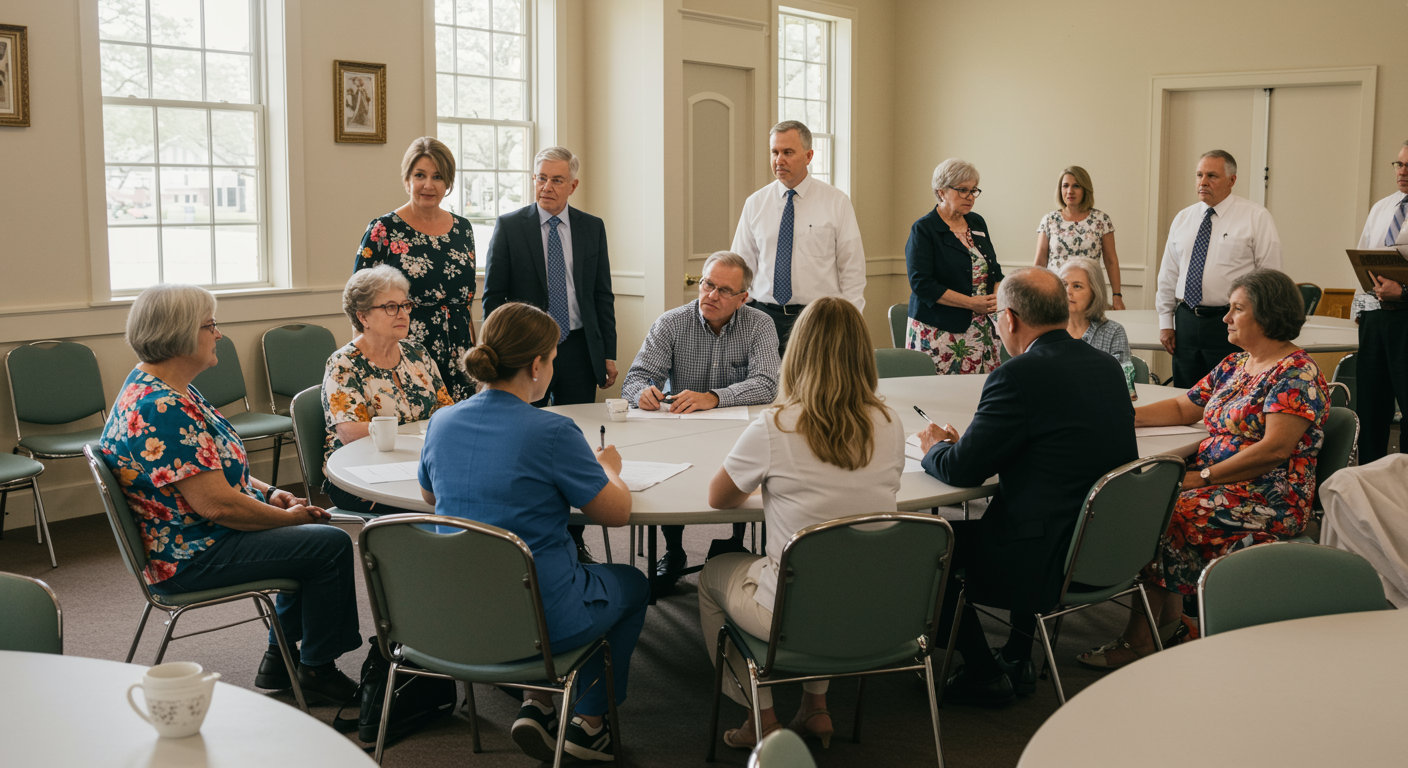A Journey of Comfort: Understanding Palliative Care in the Salt Lake Valley
From the serene backdrop of the Wasatch Mountains to the bustling corridors of Intermountain Medical Center, palliative care teams throughout the Salt Lake Valley are changing how we think about serious illness. Dr. Sarah Jensen, a palliative care specialist at LDS Hospital, often begins her explanations by gazing out her office window at the snow-capped peaks. “Like our mountains provide shelter from storms,” she says, “palliative care provides shelter from the overwhelming aspects of serious illness.”

Understanding Palliative Care
Unlike hospice care, palliative care isn’t limited to end-of-life situations. As Bishop Thompson from a local LDS ward explains to his congregation, “It’s about adding life to your days, not just days to your life.” This approach resonates deeply within Utah’s community-focused culture, where family support and caring for one another are fundamental values.

The Wasatch Front’s Unique Approach
In the Salt Lake Valley, palliative care often integrates seamlessly with both traditional medical care and spiritual support. From the University of Utah Hospital to St. Mark’s, palliative care teams work alongside other specialists while respecting the strong family and faith traditions that characterize our community.
Who Can Benefit?
Lisa Martinez, a palliative care nurse at Huntsman Cancer Institute, sees patients dealing with various conditions:
- Cancer patients undergoing treatment
- People with chronic heart or lung diseases
- Those managing neurological conditions
- Patients with kidney disease
- Anyone with a serious illness affecting quality of life

“Here in Utah, where family ties run deep,” Lisa notes, “we often see multiple generations involved in care decisions. Our palliative team helps facilitate these important family discussions, often including home teachers and Relief Society presidents when requested.”
The Palliative Care Team
Against the backdrop of the Salt Lake Valley’s integrated healthcare system, palliative care brings together:
- Doctors specialized in pain and symptom management
- Nurses with advanced training
- Social workers familiar with local resources
- Chaplains who work alongside ward bishops when desired
- Physical and occupational therapists
- Nutritionists who understand local dietary preferences
A Day in Palliative Care
James Thompson, receiving care while still working at his office near Temple Square, shares his experience: “My palliative care team helps me manage my heart condition while maintaining my active role in the community. They understand that being able to attend my grandchildren’s events at the stake center is just as important as my medical care.”
Addressing Multiple Needs
Palliative care in the Salt Lake area focuses on:
- Pain management
- Symptom control
- Emotional support
- Spiritual care, often coordinating with LDS family services when requested
- Family support and education
- Help with medical decision-making
- Coordination between healthcare providers

The Local Support Network
One unique aspect of palliative care in Utah is its integration with existing community support systems. “We often work alongside Relief Society committees and priesthood groups,” explains Dr. Jensen. “This community involvement, combined with professional medical care, creates a comprehensive support network that’s uniquely Utah.”

Making It Work for You
Whether you’re being treated at Intermountain Healthcare, the University of Utah, or any other local facility, palliative care can be adapted to your needs. The teams understand local customs and values, from family home evening to Sunday worship, and work to ensure care plans respect these important aspects of life.
The Role of Family
In the Salt Lake Valley, where family often extends beyond immediate relatives to ward families, palliative care teams are experienced in working with extended support networks. They help coordinate care while respecting family dynamics and religious observations.
Looking Forward
As Salt Lake City continues to grow and evolve, palliative care services are expanding to meet diverse needs while maintaining sensitivity to local traditions. From the benches of Liberty Park to the quiet neighborhoods of Holladay, palliative care teams are helping people live better lives despite serious illness.

Finding Your Path
Whether you’re looking out at the valley from the Avenues or watching the sunset over the Oquirrh Mountains, know that palliative care is available to help you or your loved ones navigate serious illness while maintaining quality of life. As one patient recently shared while sitting in her garden in Sandy, watching the spring snow dust the mountains: “Palliative care helped me find peace with my illness while staying connected to everything that makes life here in Utah special.”
The journey through serious illness doesn’t have to be walked alone. With the strong community support unique to the Salt Lake Valley and the expertise of palliative care teams, patients can find comfort, support, and improved quality of life while maintaining their connections to family, faith, and community.
For more information about palliative care services, contact your local healthcare provider or speak with your bishop about connecting with LDS Family Services for additional support resources.
